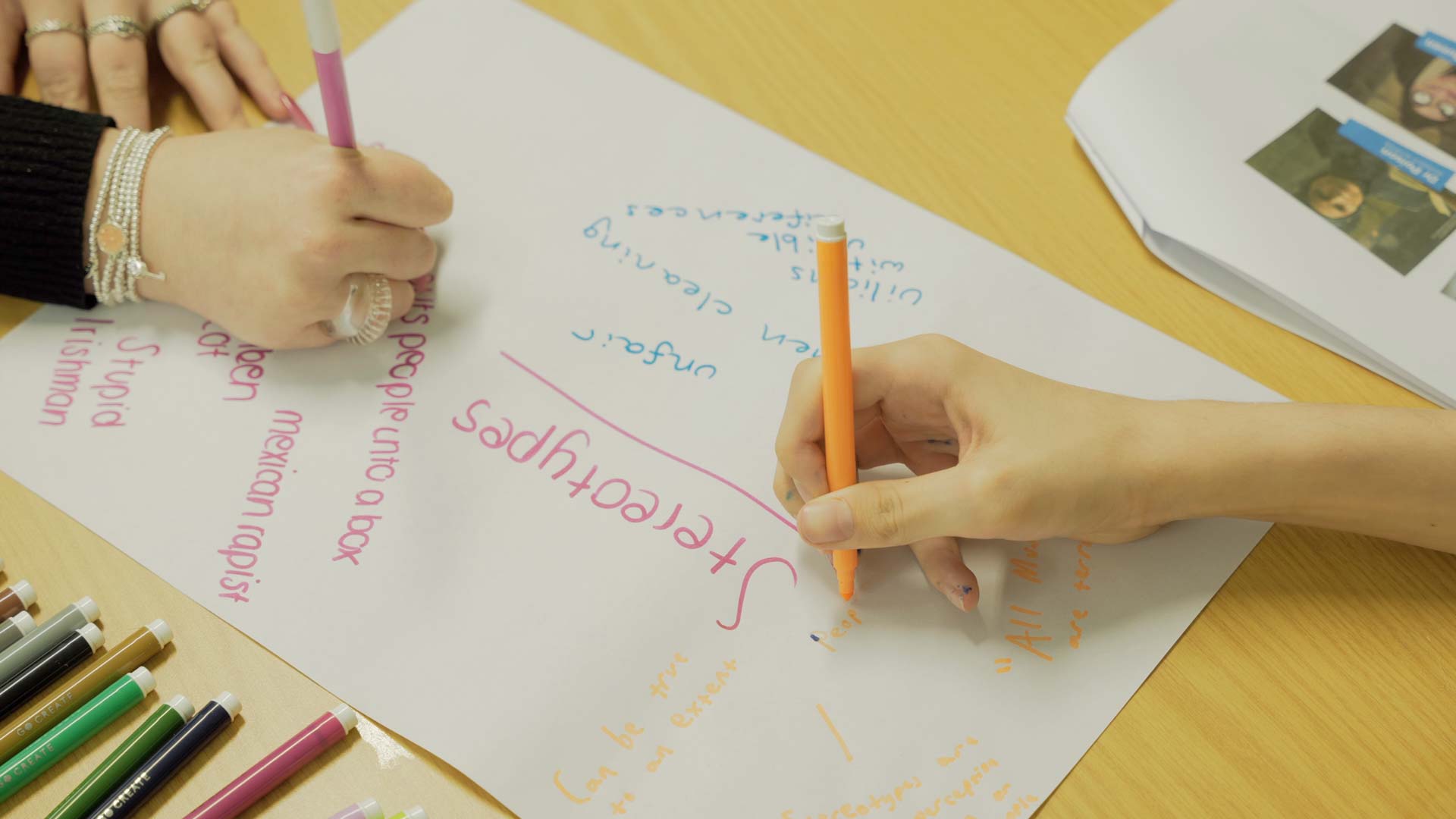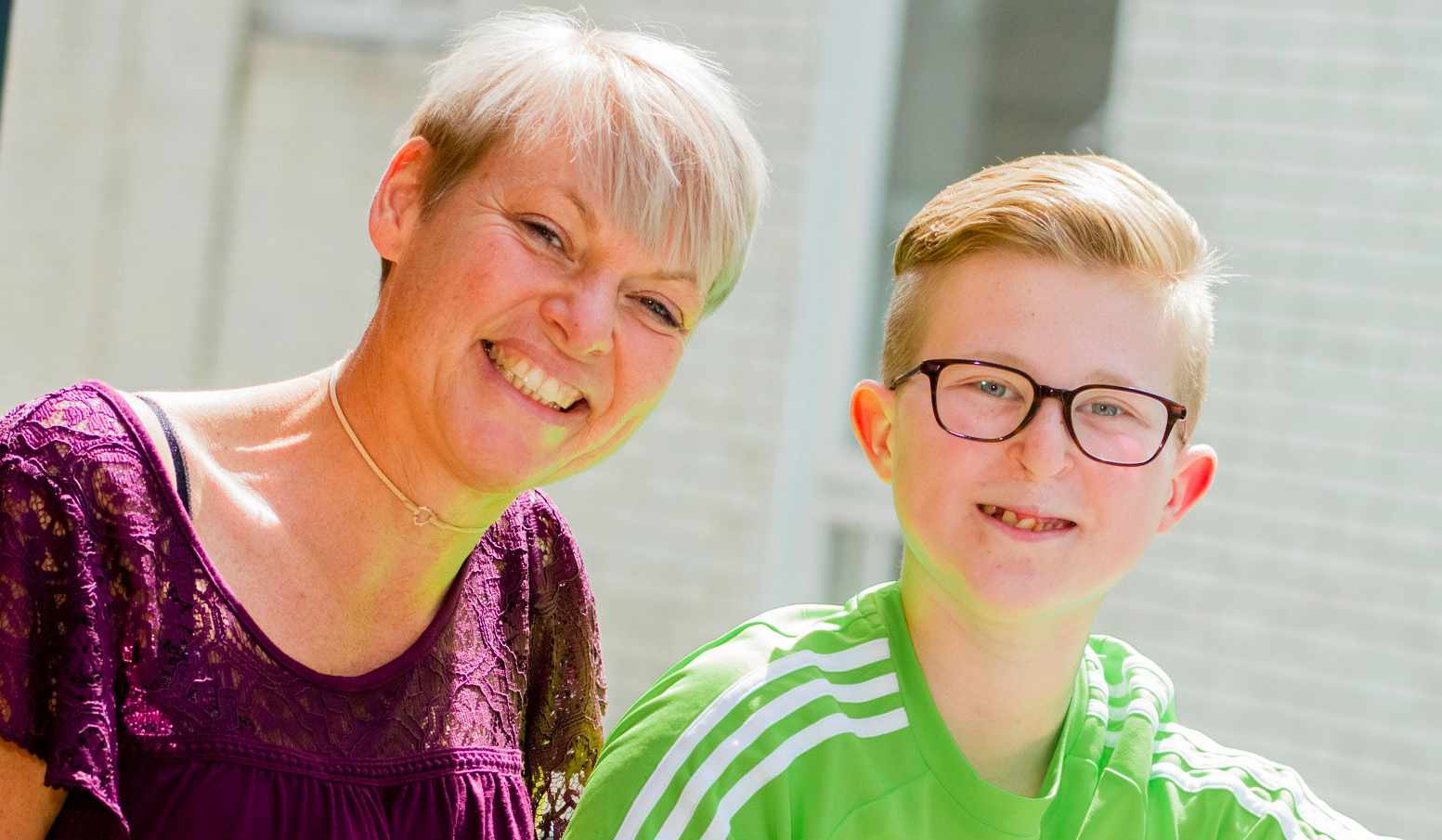I’m Sam, the Children and Young People’s Wellbeing Co-ordinator at Changing Faces. In partnership with Julie, Senior Practitioner, I run a series of online workshops for children, young people and their families.
Often the young people we support tell us they experience teasing and bullying because of looking different and our research tells us that sadly this is too often the case for young people with a visible difference. A key part of our online workshops looks at tools and techniques in how to manage bullying and feel more empowered.
Today, I’m going to talk you through some of those tools and techniques.
Although it can be tempting to take matters into your own hands and contact the other parents, it’s important to keep a cool head. Try to be the ‘calm within your child’s storm’.
Be the calm within your child’s storm
Bullying can have a massive impact on a young person’s self-esteem and self-confidence and can make them feel anxious and alone and even wonder whether it is their fault they are being bullied.
If your child is being bullied, listen carefully to what they are saying and take time to find out the details of what has happened, and how they’re feeling.
Although it can be tempting to take matters into your own hands and contact the other parents, it’s important to keep a cool head. Try to be the ‘calm within your child’s storm’.
Keeping calm will also make it more likely that your child will talk to you if there is any more bullying in the future as they won’t be as worried that you might ‘dive in’ and get upset.
Give the power back to your child
Repeat back to your child in their words what they have said to you and ask them what they feel the plan should be to deal with the bullying.
It’s important that your child feels central to any decisions that are made when it comes to dealing with bullying and that they feel supported enough to say what they would like to happen and what would work best for them.
Seek support in school
We often encourage the young people we support to have a ‘go to’ person in school that they feel they can trust and who understands them and the issues they may face on a day-to-day basis because of having a visible difference. This can be anyone from their class teacher to a SENCO, classroom assistant, or pastoral support team member.
If the bullying is related to school in any way, and this relationship is in place already, encourage your child to speak to that member of staff and tell them what is happening. They can then look, in partnership with your child and yourself, at ways to manage the situation and move forward. Remember, it’s key that your child’s wishes remain at the heart of any plan to manage the bullying.
Bullying is about taking the power away from an individual and the bully’s goal is to get a reaction.
Not every teacher or school may feel confident in how to talk about visible differences, which could impact their ability to tackle appearance-related bullying effectively. We’ve got training and classroom resources for schools, so teachers can better understand how they can help. You and your child might want to share these with a member of staff.
Advice for your child in the event of bullying
When bullying is taking place, it’s important that your child tries to stay calm. This is difficult but it can make a real difference to the impact on them and the response of the bully.
Stop, walk and talk
Bullying is about taking the power away from an individual and the bully’s goal is to get a reaction.
We recommend the “stop, walk and talk technique.” Here’s a step-by-step for your child when interacting with a bully.
- Keep calm and don’t respond
- Walk away with conviction
- Find a safe space and someone you trust to talk with them


